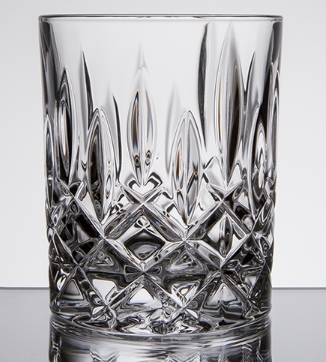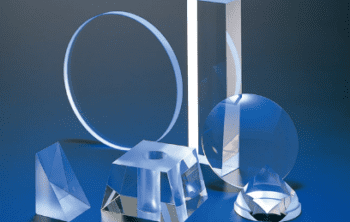Crystalline glass, also known as lead-free crystal or crystalline, is a type of glassware that resembles traditional crystal glass in appearance but contains little to no lead content. It is a safer and more environmentally friendly alternative to lead crystal, which has been used historically to produce high-quality glassware due to its clarity and brilliance.

The main difference between crystalline glass and lead crystal lies in the composition of the materials used to make them. Lead crystal typically contains a significant amount of lead oxide (up to 30% or more) in addition to silica (sand), soda (sodium carbonate), and potash (potassium carbonate). The presence of lead in crystal glass gives it exceptional optical properties, such as high refractive index and dispersion, resulting in its characteristic brilliance and sparkle.
In contrast, crystalline glass is made with a reduced or eliminated lead content. It is often composed of silica, soda ash, and other minerals, but with the lead oxide replaced by other metal oxides, such as magnesium or barium oxide. The absence of lead makes crystalline glass a safer choice for food and beverage containers since lead can leach into liquids or foods over time, posing health risks if consumed.
Key characteristics and features of crystalline glass include:
- Clarity and Brilliance: Crystalline glass shares some optical properties with lead crystal, such as excellent clarity and brilliance. It has a similar visual appeal without the potential health hazards associated with lead.
- Durability: Crystalline glass is durable and less prone to chipping or breaking compared to fine crystal glassware.
- Environmentally Friendly: Due to its lead-free composition, crystalline glass is considered more environmentally friendly and safer for both consumers and glassblowers who work with the material.
- Dishwasher Safe: Crystalline glassware is generally dishwasher safe, making it easy to clean and maintain.
- Wide Range of Applications: Crystalline glass is used in various glassware products, including wine glasses, tumblers, decanters, vases, and other decorative items.
- Lower Cost: Crystalline glassware is often more affordable than lead crystal, making it accessible to a broader range of consumers.
While crystalline glass offers many advantages and is a suitable alternative to lead crystal for everyday glassware, it may not exhibit the same level of brilliance or sparkle as lead crystal due to the absence of lead. However, advancements in glass manufacturing technology continue to improve the optical properties of crystalline glass, providing consumers with high-quality glassware options without compromising on safety or aesthetics.


